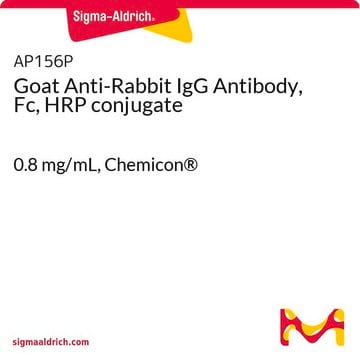24157
Columna capilar para GC VOCOL®
L × I.D. 60 m × 0.32 mm, df 3.00 μm
Sinónimos:
F.S.CAP VOCOL® 60M 3.0UM .32MM
Iniciar sesiónpara Ver la Fijación de precios por contrato y de la organización
About This Item
UNSPSC Code:
41115710
eCl@ss:
32119290
Productos recomendados
material
fused silica
Quality Level
agency
EPA TO-17,502.2,624,8015,8260,OLM04.2 VOA,524.2
NIOSH 1003
parameter
≤25-230 °C temperature (isothermal or programmed)
Beta value
27
df
3.00 μm
technique(s)
gas chromatography (GC): suitable
L × I.D.
60 m × 0.32 mm
application(s)
environmental
food and beverages
forensics and toxicology
industrial hygiene
column type
capillary intermediate polar
¿Está buscando productos similares? Visita Guía de comparación de productos
General description
Application: This intermediate polarity column, designed for analyses of volatile organic compounds (VOCs), offers great retention and resolution of highly volatile compounds. Use this column in direct injection ports or coupled to purge and trap systems.
USP Code: None
Phase:
USP Code: None
Phase:
- Bonded
- Proprietary
- ≤0.32 mm I.D., <2 μm: Subambient to 250 °C (isothermal or programmed)
- ≤0.32 mm I.D., ≥2 μm: Subambient to 230 °C (isothermal or programmed)
- ≥0.53 mm I.D., <2 μm: Subambient to 250 °C (isothermal or programmed)
- ≥0.53 mm I.D., ≥2 μm: Subambient to 230 °C (isothermal or programmed)
Application
VOCOL® column (diphenyl dimethyl polysiloxane with crosslinking moieties) may be used for their relevancy to the purge-and-trap technique and GC/MS analysis of 34 volatile organics. It was also found suitable in being used for determination of volatile compounds by whole column cryotrapping.
Other Notes
We offer a variety of chromatography accessories including analytical syringes
Legal Information
VOCOL is a registered trademark of Merck KGaA, Darmstadt, Germany
Elija entre una de las versiones más recientes:
¿Ya tiene este producto?
Encuentre la documentación para los productos que ha comprado recientemente en la Biblioteca de documentos.
Determination of volatile compounds in water by purging directly to a capillary column with whole column cryotrapping.
Pankow JF and Rosen ME.
Environmental Science & Technology, 22 (4), 398-405 (1988)
Adrian Fourcin
Logopedics, phoniatrics, vocology, 35(2), 74-80 (2010-06-12)
Voice is a dominant component of everyday speech in all languages. The possibility is examined that its use may have evolved so that its timing in connected speech is ideal from the point of view of information theory-with voicing taking
Nathalie Henrich et al.
Logopedics, phoniatrics, vocology, 32(4), 171-177 (2007-11-09)
Are the characteristic timbre and loudness of Bulgarian women's singing related to tuning of resonances of the vocal tract? We studied an Australian female singer, who practises and teaches Bulgarian singing technique. Two different vocal qualities of this style were
Eric Manders et al.
Logopedics, phoniatrics, vocology, 36(4), 139-144 (2011-03-10)
In this study we investigated how important significant others find it to be informed, supported, and trained by speech-language pathologists (SLPs) and to what extent they perceive their expectations and needs as to these aspects to be fulfilled. Furthermore SLPs
Teija Waaramaa et al.
Logopedics, phoniatrics, vocology, 40(4), 156-170 (2014-07-08)
Vocal emotions are expressed either by speech or singing. The difference is that in singing the pitch is predetermined while in speech it may vary freely. It was of interest to study whether there were voice quality differences between freely
Nuestro equipo de científicos tiene experiencia en todas las áreas de investigación: Ciencias de la vida, Ciencia de los materiales, Síntesis química, Cromatografía, Analítica y muchas otras.
Póngase en contacto con el Servicio técnico




